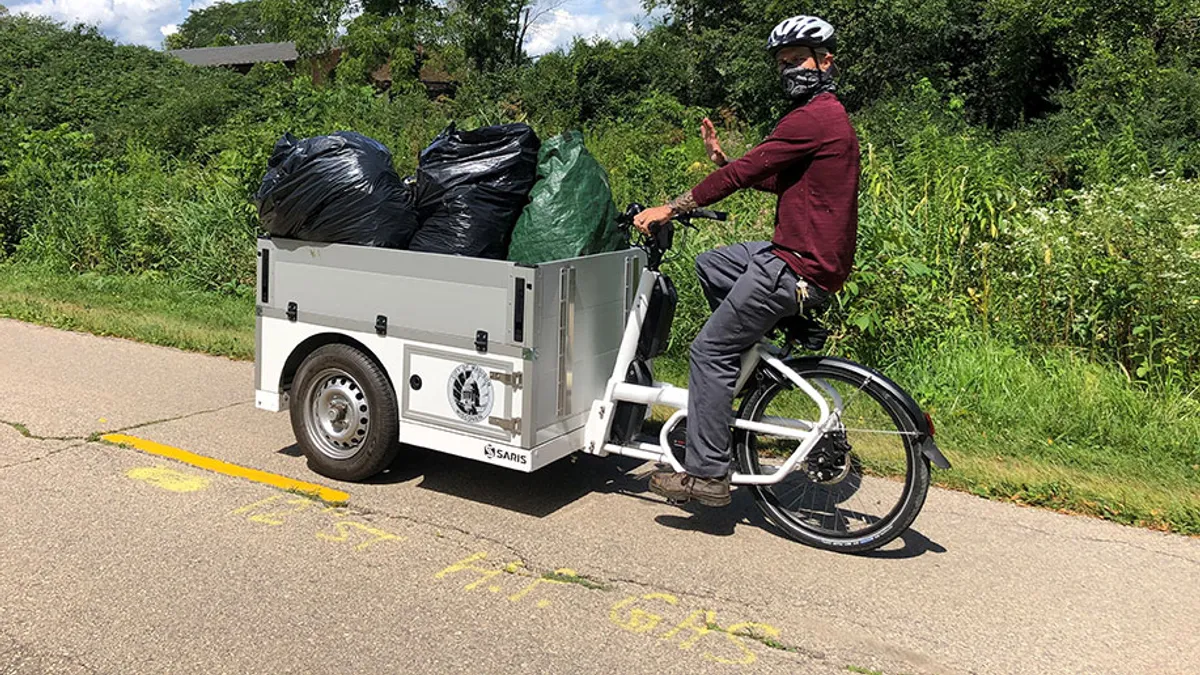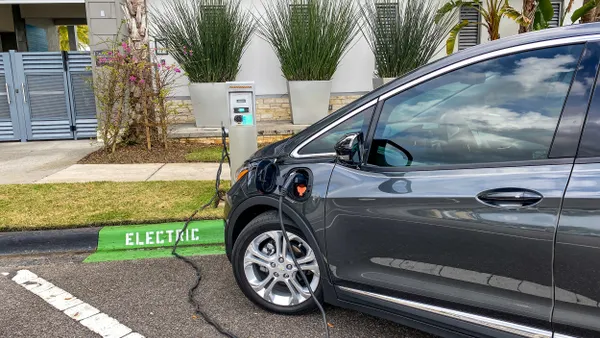Dive Brief:
- Cycling infrastructure manufacturer Saris Infrastructure will soon launch a pilot in Portland, OR for its battery-electric, pedal-assist cargo bike that is specifically designed for municipal employee use. This will be the company's second pilot of the bikes following a recent fleet test in Madison, WI.
- The three-wheel cycle has a cargo holding area on the front that allows for "optimization of whatever task the city [is] doing that day," said Mike Basarich, director at Saris Infrastructure. The bike, designed in partnership with Bosch and cargo bike manufacturer Urban Arrow, is expected to become available for mass purchase in February.
- Outside of the e-cargo bike, Saris supplies gear such as pumps and bike lane delineators to "make communities more bike-friendly," Basarich said.
Dive Insight:
During its four-month pilot in Madison, 20 city employees in five departments used the Saris bikes on a rotation for different tasks, such as transporting landscaping equipment or yard waste, Basarich said. Users can adjust the pedal assistance to accommodate the amount of weight they are carrying while the bike's two 500-watt batteries can last for 30 to 50 miles depending on use. Charging occurs through a standard outlet and no specialized infrastructure is necessary, he said.
Saris collected data in the Madison pilot to determine any areas for improvement and to better understand a city's limitations and concerns in adopting a cargo bike fleet. The company took into account user feedback such as adding more tool tie-downs and better hazard lights, and advancing internal training and messaging.
E-cargo bikes can cut down on single-occupancy car trips while still offering ample space to transport goods in a city. This can lead to obvious benefits such as fleet emission and cost reductions, which can be a particular benefit to local governments hoping to double down on climate and sustainability commitments.
Several U.S. cities have implemented measures in recent years to reduce municipal transportation emissions. Portland has actually pledged to reduce its fleet emissions to 38% below 2006-2007 levels by 2030, while Seattle and New York work toward similar goals. And earlier this month, Orlando entered a pilot program with Arcimoto to test small, three-wheeled, "ultra-efficient" electric vehicles across six departments.
Saris found that the "trike" design — two wheels in the front and one in the back — provides stability and works well for people of all ages and varying abilities. The company found no correlation between rider demographics (age, fitness level, etc.) and vehicle effectiveness, indicating the e-cargo bike as a viable transportation option even for people with little or no cycling experience.
The bike can also reduce employment barriers for those who do not drive outside of work. Riding a bike on the job means employees do not have the time and cost commitments of obtaining a driver's license, allowing greater on-the-job engagement and more job opportunities for non-drivers.
Though the e-cargo bike is optimized for municipal use, anyone can purchase one when sales begin, Basarich said, noting they can show promise for other uses such as commercial deliveries.












